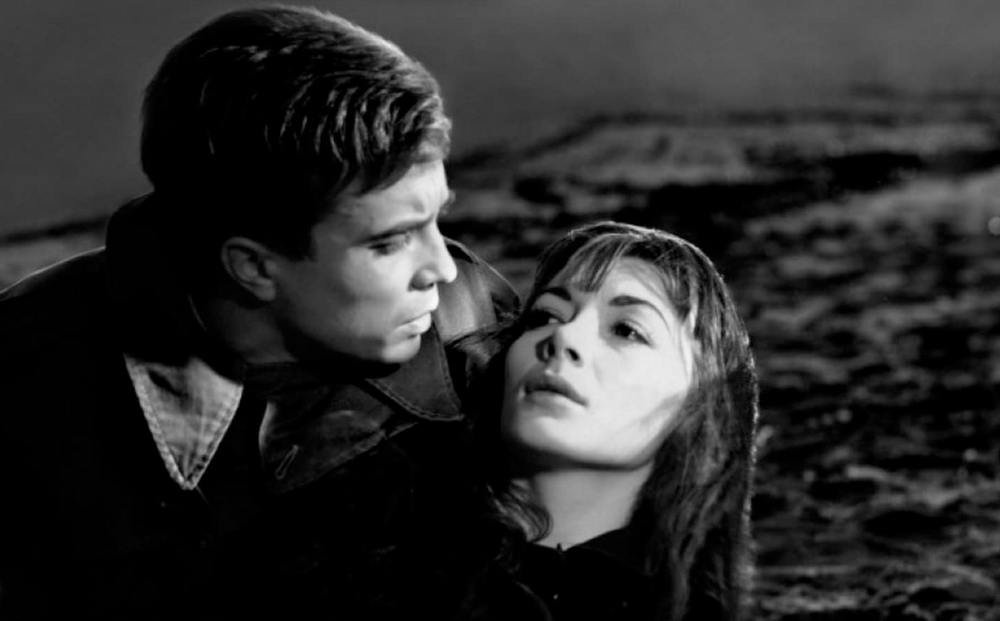WHEN YOU READ THIS LETTER
France/Italy, 1953
Directed by Jean-Pierre Melville
With Juliette Gréco, Philippe Lemaire, Yvonne Sanson
Approx. 104 mins. 4K DCP restoration.
Sister Thérèse (legendary chanteuse and post-war existentialist icon Juliette Gréco) has to quit the convent to run the family stationary store in Cannes and support kid sister Irène Galter — who’s involved with lowest of low-lifes Philip Lemaire. And then rape, attempted suicide, blackmail, a faked car accident, a highly misplaced love and an ambiguous conclusion ensue. Melville’s rarest film — his first box office success (following his extremely “arty” first two films, LA SILENCE DE LA MER and LES ENFANTS TERRIBLES) — was originally dismissed by autuerist critics as a sell-out to commercialism. Melville scholar Ginette Vincendeau attributes much of the disparagement to a wider contempt by critics at the time for melodrama and “women’s pictures.” (Melville’s later work is almost entirely devoid of female characters, with the notable exception of LÉON MORIN, PRIEST, with Emmanuelle Riva.) Photographed in black and white by the great Henri Alekan, whose credits range from Cocteau’s BEAUTY AND THE BEAST and Wyler’s ROMAN HOLIDAY to Wim Wenders’ WINGS OF DESIRE, with extensive location shooting in an almost unrecognizable early 1950s Cannes, WHEN YOU READ THIS LETTER can now be seen as an important missing link in Melville’s universe.
Reviews
“Has a gamy, cynical perspective on the zone where middle-class respectability intersects with underworld opportunism. Melville’s great gift was to emphasize both the radical isolation of individuals and the sticky webs of social obligation in which they nonetheless exist... And there is, above all, Ms. Gréco’s face, with its sharp angles and geometric enigmas. Her charisma is indelible.”
– A.O. Scott, The New York Times
“STANDS OUT FROM THE BULK OF MELVILLE’S OEUVRE… illuminates the Riviera—its elegance and frivolity, its vivid life of leisure, luxury, and corruption—in invariably mesmerizing detail.”
– Jeremy Carr, Mubi
“Sophisticated observation and flashy repartee involving those two great Noir topics: MONEY AND SEX… Melville irresistibly pulls you into an enticing if often nasty world in which desire, often forbidden and/or duplicitous, rules his characters’ every feverish action.”
– David Noh, Film Journal
“Theatre historians see (Melville’s) work as marked by both brilliance and eclecticism, his plays ranging from comedy to psychological drama… this eclecticism is at the very center of Lettre… Lettre also leaves open the possibility of a particular type of female spectatorial pleasure unusual in the cinema of the time and in Melville’s own films.”
– Ginette Vincendeau
“A panorama of postwar moral decay, with abusive relationships, con artists and blackmailers… Max (Trive) exhibits a brooding sensuality that invoked the style of the new dangerous and rebellious breed of American actors from the late 1940s and 1950s.”
– Christopher Weedman, Senses of Cinema

